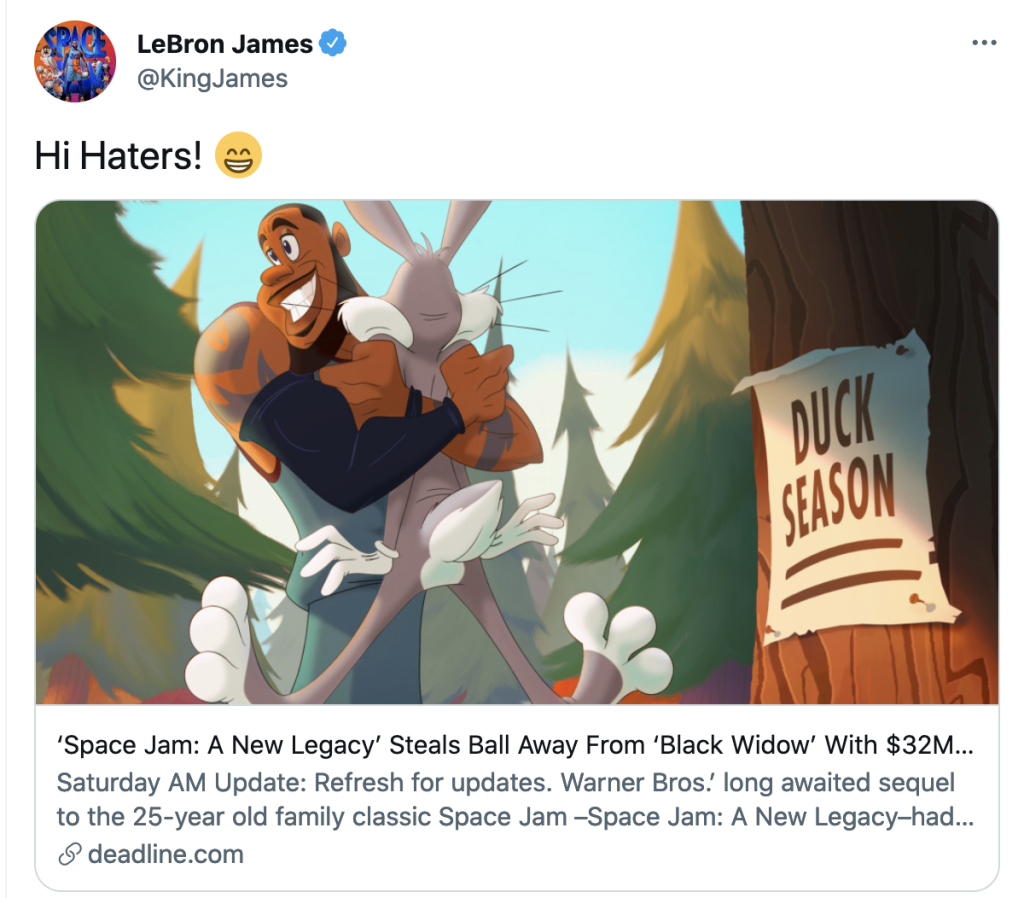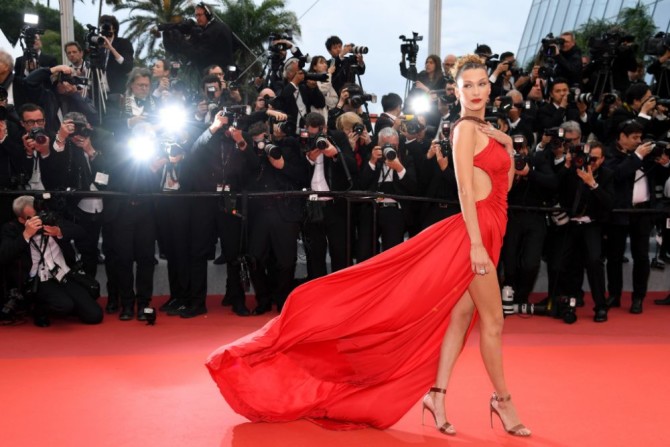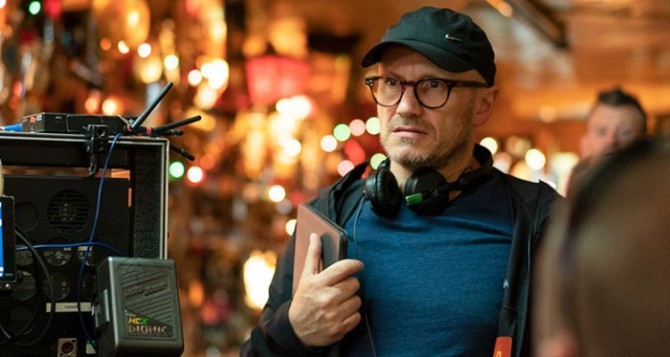Is Space Jam 2 secretly a great movie??? Why did Black Widow drop so much in its second weekend? Has Cannes ever given the Palme D’or to a good film?? And Carson offers a book recommendation!
Out of morbid curiosity, I threw on Space Jam this weekend. It was on HBO Max 4 free so why not? My enjoyment of the film, if you can call it that, was inconsistent at best. There is only so much fun an adult can have with a movie that’s made for 11 year-olds. But when I turned off my brain and leaned into that kid who thought Saturday morning cartoons were the coolest most awesomest things that life had to offer, I enjoyed myself.
But I’m not here to review the film. I’m here because I had an epiphany while watching the movie. Are you ready for it? Here it is: Every screenwriter should write at least one family movie. Even if you never show that script to anyone, you should still write it. Let me explain why.
A family film allows you to practice executing all of the big screenplay beats without fear of overdoing it. Since family films are not put under the same microscope as, say, a David Fincher movie or a Noah Baumbach film, you can practice all of the things you’ve learned on screenwriting websites without having to worry about being too on-the-nose. That’s because kids movies ARE on-the-nose.
Take, for example, the hero’s arc. This is the most classic story beat there is. You have a main character. They have some sort of problem in their lives holding them back. The journey they go on is about realizing why this issue is hurting them, and ultimately learning that there’s a better, more fulfilling, way to live life. This transformation – or “arc” – leaves the audience feeling happy because they, too, have issues holding them back. They feel that if this movie character can overcome their flaw, they can overcome theirs as well.
But a character arc is quite a delicate measure to pull off. It looks easy when it’s done well but there are a lot of places where you can screw it up. A common issue is that the writer will say, “I don’t want to overdo it,” and be reallllllyyyyyyy subtle in how the flaw plays out. They’ll hint at it on page 30, hint at it again on page 50, before finally having them overcome it during the climax. When the reader asks, “What was that whole thing at the end where the hero said to his daughter he was going to donate his life savings to cancer research?” The writer replies, “It’s because he’s no longer greedy! The hero finally realized that money isn’t what matters. It’s family!” The reader responds with a side glance. “The hero’s flaw was that he was greedy?” And the writer dies a little inside.
The great thing about kids movies is that you can lean into this stuff and not worry about it coming off as corny or on-the-nose. In Space Jam, Lebron James’s son doesn’t want to be a basketball player. He wants to make video games. Lebron can’t accept that his son doesn’t want to play basketball and keeps pushing him to ditch the computer and practice his jumper.
After Lebron gets sucked into the Toon world, where he and the “Toon” squad are up against the “Goon” squad, Lebron keeps telling his teammates what to do. Move the ball up the court quickly. Set picks here. Step back, crossover when the other player is too close. Dunk. Etc. The results are not good. By halftime, they’re down 1000 points.
Lebron asks the team what’s up? Why are you playing so bad? They concede that they’re doing what he told them to do – be like him – but it’s not working. Lebron has his big epiphany. Just like with his son, everybody here has their own talents. He can’t make them be like him. He has to let them be themselves. Lebron has arced! And, of course, once the toons can start doing toon things (Roadrunner painting a fake desert canvas that the Goon players disappear into) they start winning.
Now some of you may be rolling your eyes. “SOOOOO ON-THE-NOSE. SOOOOO CHEESY.” That’s the point. You can’t learn to execute a flaw subtly if you’ve never executed a flaw effectively in any situation. This holds true for all the big screenplay beats: the inciting incident, the refusal of the call, the fun and games section, the midpoint escalation, the central relationship conflict, making the final goal seem impossible. When you write a children’s movie, you get to master all this stuff without the cynical rolling eyes of the high-expectation moviegoer.
Every genre has a slightly different expectation when it comes to screenplay beats. The kid’s movie is on-the-nose. The buddy-cop movie is a still on the nose but a little less so. The serious action movie, like Jason Bourne, is more subtle still. All the way up to Oscar dramas, where the goal is to camouflage your screenplay beats to such a degree that the audience is unaware that the movie was even written in the first place.
So go write that family film. The good news is that if it’s actually good, it’s one of the most profitable genres in the business. So you could get paaaaaaaaaid.
Moving along, Black Widow did not do well on its second weekend at the box office, dropping a widow-making 67%. For some reference, the last Marvel movie to be released, Spider-Man: Far From Home, dropped 51% on its second weekend. If we want a closer comp, we can use Captain Marvel, which dropped 55%. The reason 55% is so concerning is that Captain Marvel was a brand new character. Black Widow is a known character who had been around for a decade. If anyone should have the lower drop, it should be the proven character.
What does this mean? Hard to tell. Everything in the post-pandemic box office world is hard to gauge. Who knows how many people are buying the movie from Disney’s “Premiere Access” service. To be honest, as I’m writing this, I’m not even sure if they’re including the money they got from Disney + in that final box office haul or not. If it is included, that means even fewer people went out to watch the movie.
I did hear something interesting about Black Widow from Half in the Bag’s review this week where they said Marvel starts creating their action set pieces before the director has even been chosen. I don’t know how accurate this information is and I’m sure it differs from project to project. But it would certainly explain why Black Widow’s set pieces felt disconnected from its family-oriented storyline, which I found to be pretty good.
I’ve actually wondered this for a while. How is it that Marvel is recruiting these directors who have never shot an effects shot in their entire careers, and putting them in charge of action set pieces that, individually, cost ten times as much as the most expensive movie they’ve made? I guess that’s the answer. Marvel says “F U, newbie. We’re going to shoot the action scenes ourselves and you can record your little two-people-in-a-room-talking scenes when we call on you.” I think one of you pointed this out in regards to Eternals. They’re having all sorts of issues balancing Chloe Zhao’s muted heavily dramatic character stuff with the big fancy set pieces. As a result, Zhao has been pushed to the side while second unit directors with more experience finish the movie.
This probably goes on more than we know. We heard this same thing happening all the way back with Rogue One, with Gareth Edwards not being able to handle the grandness of his super-movie. So they replaced him with Tony Gilroy. All of this is a result of Hollywood moving away from bland but experienced directors (aka Ron Howard) to “visionary” but inexperienced directors. These directors bring vision. But never having been on a giant set before or having filmed a giant set piece, they need help. So studios, I guess, have come up with this hackneyed solution to the problem, separating the effects directing team from the film directing team.
I think this is why Kathleen Kennedy loved Rian Johnson so much. She thought she had the best of both worlds. She got a director who has a unique vision who ALSO made enough movies that he didn’t need babysitting. She could just leave him alone to make his movie. Of course, her Rian Johnson beer goggles kept her from realizing he’d written a garbage script. Which just goes to show how difficult making a good movie is. Even when you think you’ve got all your bases covered, you can still make a terrible movie (“Hey, I got an idea. What if we made the most iconic hero in movie history, Luke Skywalker, as unlikable as possible? Who’s with me?”).
Elsewhere, the Cannes Film Festival just wrapped. If you’re looking for movies that are guaranteed to be bad, look at whatever the Cannes Film Festival celebrates. You may say, “Carson, why are you such an indie film hater?” That’s not what this is about. The French Film Industry refuses to put any stock into the trade of screenwriting. Nobody cares about screenwriting over there. All they care about is the director. This is why they celebrate so many movies that are terrible. Because they don’t care if the story makes sense. All they care about is what the film looks like.
Another problem with Cannes is that they hate Hollywood so much that they are determined to celebrate the opposite of whatever comes out of the studio system, even if that means propping up something terrible. It’s more important to NOT be Hollywood then to find actual good movies. To a certain degree all film festivals are like this. Sundance is pretty pretentious itself. But Cannes is the worst.
Now, I will admit they’ve gotten it right a few times. Parasite was amazing. And The Square was pretty cool as well. But they often prop up weird, nonsensical, boring films that are rewarded for things other than storytelling. I don’t know where the word “pretentious” derived from, but I always look at it as a derivation of “pretend.” All of these Cannes films are people pretending to make something profound when, in actuality, once you look past the directing, they’re just as vapid as the worst Hollywood flicks. By the way, how the heck didn’t The French Dispatch win the Palme D’Or? It’s not only black and white (any black and white film entered into Cannes is automatically placed in the Top 5). But it’s got “French” in the title! So disappointed in Wes Anderson.
Let’s end this Mish Mash on a positive note. As you know, I loved Sally Rooney’s Normal People on Hulu. I thought it was excellent. I recently found out the same filmmaking team, including the awesome Lenny Abrahamson, are filming Rooney’s first novel, Conversations with Friends, as a follow-up. So I picked it up and read it. I wanted to see what it was about Rooney’s writing that allowed it to be adapted into something so powerful. And, holy s#%@. I was not disappointed.
Rooney is an exceptional writer. The premise of the novel is simple (you guys know I like simple stories!). A young spoken word poet starts dating an actor who’s married to a journalist doing a story on her. You’d look at that and think, “How do you get more than 50 pages out of that? That’s a subplot for any other novel.”
But Rooney somehow makes it compelling the whole way through.
Part of it is her inherent talent to communicate the complexities of the human experience better than any writer in recent memory. She has these insights into the minutiae of human interaction that are consistently illuminating. You sit there and you think, “I’ve always thought that abstractly but have never been able to communicate it the way she just did.” And she mixes in this deft touch of dry humor every once in a while which turns what should be sad moments into something really funny.
My discovery that I was in love with Nick, not just infatuated but deeply personally attached to him in a way that would have lasting consequences for my happiness, had prompted me to feel a new kind of jealousy toward Melissa. I couldn’t believe that he went home to her every evening, or that they ate dinner together and sometimes watched films on their TV. What did they talk about? Did they amuse each other? Did they discuss their emotional lives, did they confide in one another? Did he respect Melissa more than me? Did he like her more? If we were both going to die in a burning building and he could only save one of us, wouldn’t he certainly save Melissa and not me? It seemed practically evil to have sex with someone who you would later allow to burn to death.
As you can see, her writing is simple. It’s easy to read. As you guys hear me talk about all the time, making your writing easy to read does you so many favors. I’ve come across lots of strong concepts that were ruined by writers who were trying to prove to you that they were Writers with a capital “W.” Rooney reminds us that you can convey everything you need to using simple words embedded in basic sentence structure.
I know she’s not for everyone. I’m not trying to convert anyone here if you’re not into these types of books. But if you liked Normal People and you like good writing and you want to be inspired, definitely check out Conversations With Friends. It’s really good.




